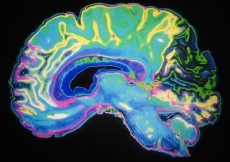January 12th, 2022
COVID-19 researchers and doctors have known since the start of the pandemic that people living with type 1 and type 2 diabetes have higher risks of developing complications, being hospitalized, and dying from the infection. It’s also known that the virus can worsen blood sugar levels and exacerbate symptoms in a person who already has a diagnosis of diabetes.
A new study, published last week in the CDC’s Morbidity and Mortality Weekly Report, finds that the virus causing COVID-19 may actually induce diabetes in children with no prior history of the disease. Nearly half of the newly diagnosed children presented with life-threatening ketoacidosis at the time of their diagnosis after recovering from COVID-19.
The study is in line with earlier research in 202o finding that children diagnosed with COVID-19 in the UK were at higher risk of developing new-onset type 1 diabetes compared with those who weren’t infected.
Two databases from U.S. health insurers were analyzed by the CDC researchers “to estimate the prevalence of new diabetes diagnoses in children under age 18 who had Covid or were known to be infected with the coronavirus,” Roni Caryn Rabin says:
The researchers found increases in diabetes in both data sets, though the relative rates were quite different: they found a 2.6-fold increase in new diabetes cases among children in one, and a smaller 30 percent increase in another.
“Even a 30 percent increase is a big increase in risk,” said Sharon Saydah, a researcher at the C.D.C. and lead author of the study. The differences likely result from different ways of classifying children as having Covid, she added.
Parents should be on the lookout for signs and symptoms of diabetes in the context of a global pandemic which results in significant long-term consequences and poor health outcomes in survivors:
“It’s really important for clinicians, pediatricians and parents to be aware of the signs and symptoms of diabetes, so they can get their kids diagnosed,” Dr. Saydah said. Increased thirst, frequent urination, unintentional weight loss and fatigue are among the telltale symptoms.
She noted that weight gain and sedentary behavior, which have increased during the pandemic, are also risk factors for Type 2 diabetes.
While studies linking infection with SARS-CoV-2 to new-onset diabetes in children are very concerning, it’s important to note that there is absolutely no evidence that COVID vaccines, proper wearing of face masks, and social distancing can potentially cause diabetes in children. They don’t. In fact, compared with the virus, using those layers of protection doesn’t appear to harm children very much at all.
It’s just one more example, on top of MIS-C, “brain fog”, long-haul COVID, and other potential complications that are not benign in kids, of why it’s important to protect every child from getting infected with SARS-CoV-2, at least until these findings can be better explained. We can all do that, right?




































